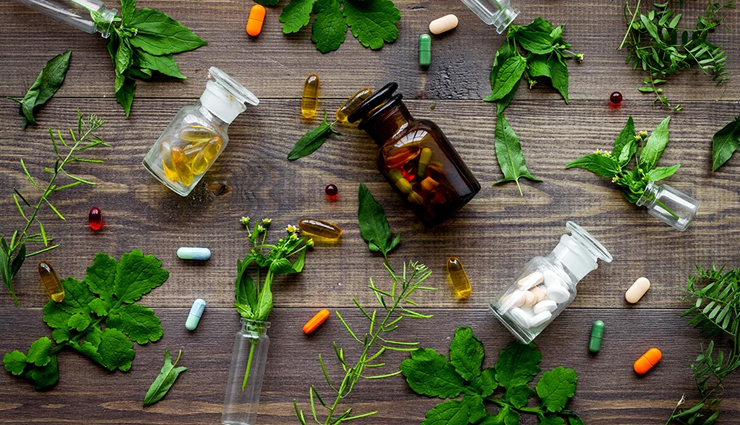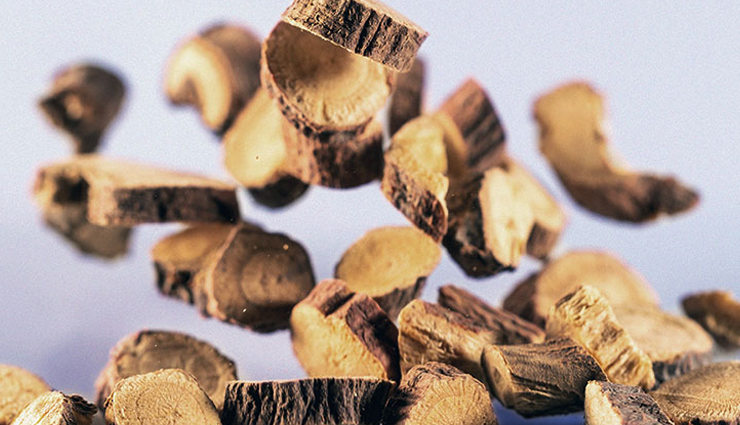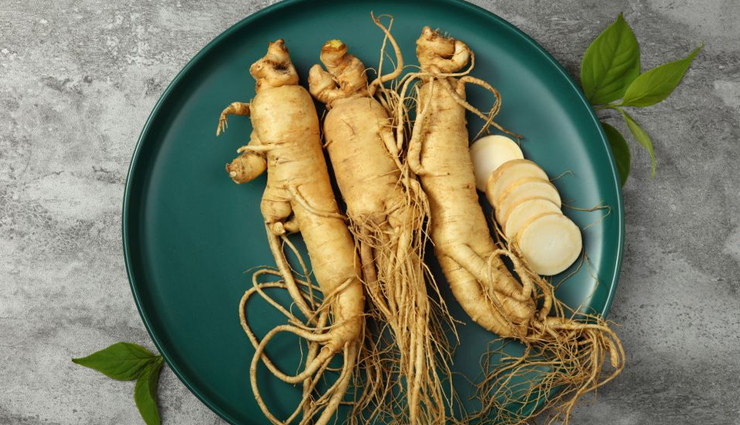- Home›
- Healthy Living›
- 5 Herbal Supplements You Should Think Twice Before Buying
5 Herbal Supplements You Should Think Twice Before Buying
By: Kratika Maheshwari Mon, 28 Nov 2022 11:49:38

When we hear the words ‘herbal’ or ‘natural’ used to describe something, we automatically assume it’s completely safe. However, this isn’t always the case. Herbal supplements are 100% derived from natural compounds, many times from ingredients we use in our own kitchens. But this doesn’t mean we can pop them with abandon. Sometimes the concentrations used in these pills are so high that they can become toxic in our body. Other times, these ingredients can interfere with other pills you’re taking and have adverse consequences. If you’re thinking of taking herbal supplements, here are five that you should think twice before buying.

# St. John’s Wort
The bright yellow flowers of the St. John’s Wort plant have long been believed to help ease symptoms of depression, anxiety and insomnia. These supplements are sold over the counter and don’t require any prescription. But because they don’t need any approval from a doctor, these supplements can also be used incorrectly. St. John’s Wort can help lift symptoms of depression, but it doesn’t necessarily work in every case.
Many times, patients depend solely on St. John’s Wort to help them cope with their depression, foregoing medical treatment. This can result in their depression progressing further along, unchecked. St. John’s Wort can also cause side-effects like dizziness and nausea. If you’re on chemotherapy, antidepressants or birth control pills, this supplement can make them less effective.

# Ginkgo Biloba
Ginkgo biloba is a Chinese herb that was used for centuries in traditional Chinese medicine to improve memory and increase blood flow to the brain. Ginkgo biloba supplements are commonly found in most health food stores and are rapidly gaining popularity in the West. However, studies are showing that ginkgo isn’t half as effective as it is touted to be, and even worse, it can have several serious consequences.
Ginkgo can thin out your blood, so if you have a blood disorder, if you’re taking aspirin, NSAIDS, antidepressants or if you’re going to undergo surgery, stay away from this supplement. It can also aggravate several conditions like infertility, diabetes and epilepsy. Consuming raw seeds from the ginkgo plant can even cause seizures or death in some cases.

# Arnica
Arnica is a herb that is actually classified as toxic, but is still used as a supplement or an oil. Arnica supplements are often taken to treat constipation. However, the side effects of arnica are so dangerous, that constipation really is the lesser of the two evils. In certain cases where the dosage of arnica was too high in a supplement, it has resulted in death. Arnica supplements can also cause shortness of breath, a quickened pulse rate, organ failure, severe bleeding and even send a person into a coma. Next time you have trouble in the bathroom, stick to safer remedies like castor oil or flax seeds.

# Licorice Root
Licorice root supplements are taken to treat a wide range of problems including respiratory issues, cholesterol, abscesses, tuberculosis and many others. The benefits of licorice boil down to one of its main compounds, glycyrrhizic acid. While this acid is generally safe in small quantities, if you take too much of it for too long, it can have several disastrous consequences.
If you take licorice root supplements for longer than a few weeks, you might experience high blood pressure, low potassium levels, muscle paralysis and sometimes even brain damage. The amount of licorice root considered safe also depends on a person’s health background. If you eat a diet high in salt or have kidney disease, then even 5 mg of licorice root could have serious side-effects.

# Ginseng
Ginseng is often considered one of the most powerful herbs in Chinese medicine. Today, ginseng supplements are used extensively to slow down the process of aging, to get glowing skin and even to heighten your libido. However, if you have diabetes, then you should forego ginseng supplements. These supplements can cause a sudden drop in your blood sugar levels which your body isn’t equipped to cope with. It can also thin out your blood, so try not to take it if you have a history of high blood pressure or if you’re already on blood thinners.





